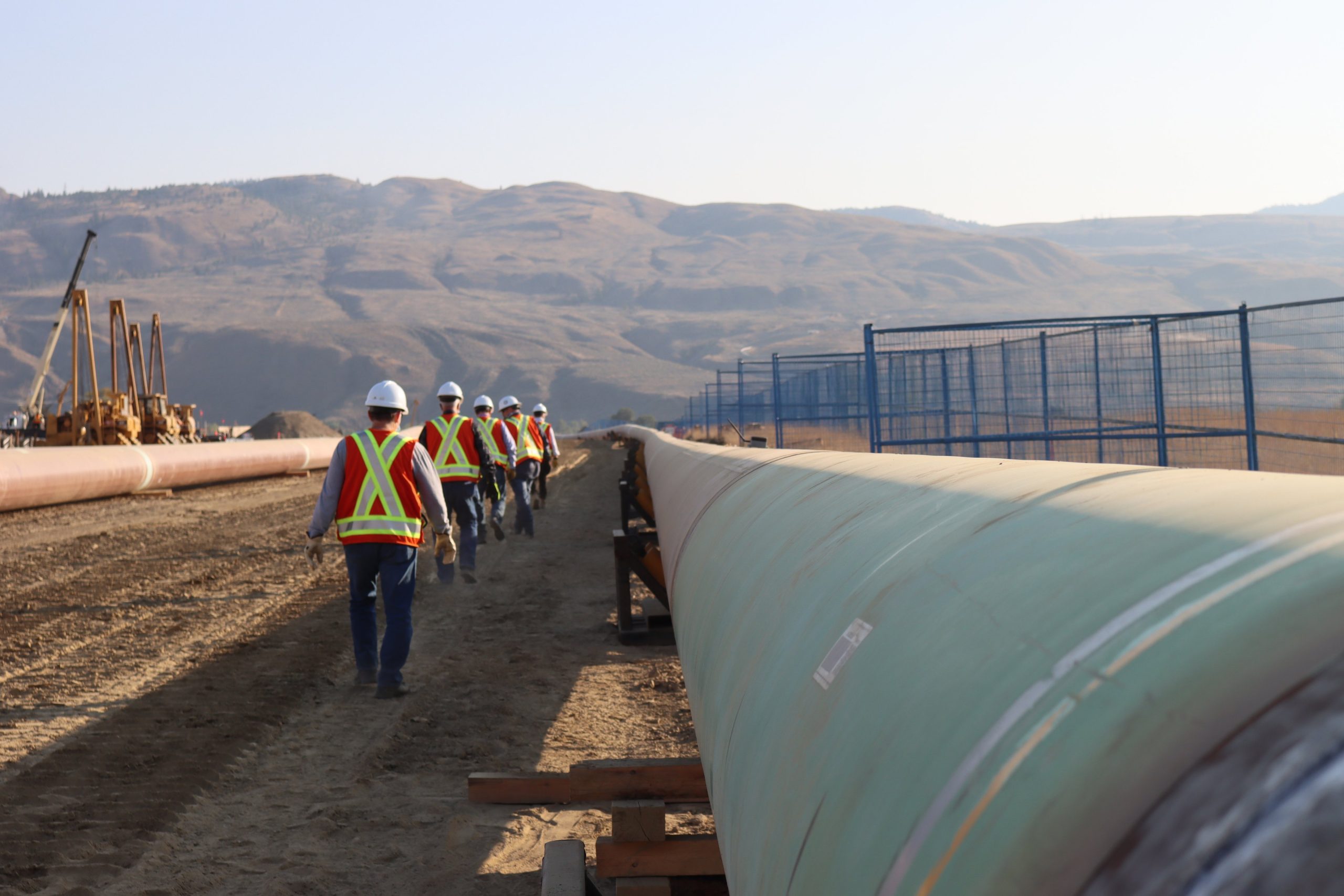Earlier this month the Trans Mountain expansion project (TMX) — the heavy oil pipeline connecting Edmonton, Alta. and Burnaby, B.C. — began operations. The oil industry argues that the project will boost revenues and stabilize the industry over the long term. The federal government claims that the project will create a “fair price” for Canadian heavy oil.
But what, among the claims, are the facts?
The federal government nationalized the TMX project in 2018 with the acquisition of its corporate owner Trans Mountain which became a federal Crown corporation. Ottawa framed this decision around a short-term desire to address financial and investor “crises” and push forward with what it viewed as a key Canadian asset.
Since then, the project has faced many additional delays due to legal challenges, the permitting process, engineering difficulties, route changes, extreme weather (including massive flooding and landslides in 2021) and “technical issues”.
The expansion project was first projected to cost $5.4 billion in 2013. In reality, the bill for the project in 2023 came to an astonishing $30.9 billion, and the final cost is yet to be disclosed.
It is important to push through the rhetoric and engage in some sober reflection, lest we fall prey to collective amnesia or misleading and rosy musings about the pipeline’s long-term profitability.
How we got here
When the federal government intervened in 2018, the project was facing “unquantifiable risk,” according to pipeline company — and the project’s previous owner — Kinder Morgan.
Sustained resistance from the Government of British Columbia and multiple Indigenous nations compounded the project’s risks which — alongside ballooning costs — made it increasingly unviable for Kinder Morgan. The sale of the project could cost taxpayers $17 billion.
While the federal government promised no more federal funding in early 2022, further analysis showed “additional cost overruns cannot be financed without government backing”.
In May 2022, it was reported that the six largest banks in Canada provided a $10-billion loan with a guarantee from Finance Canada. In other words, taxpayers continued to take on more financial risk for a project which further jeopardized Canada’s long-term climate goals.
Since the government purchased the project it has only become clearer that it is not commercially viable. The federal government’s own analysis in 2022 projected that TMX will deliver a net loss for the government.
Subsidizing fossil fuels
Increased tolls for companies transporting heavy oil through the pipeline could make up for some of the project’s losses. However, these tolls cover only a portion of the costs and oil companies like Cenovus continue to vehemently oppose raising tolls on the pipeline, though this decision will ultimately fall to the federal energy regulator.
The federal government’s decision-making around the TMX is reminiscent of other failed — and publicly funded — megaprojects with clear parallels to the Site C Dam project in B.C. Even more striking is the comparison to the Muskrat Falls hydroelectric project in Labrador.
A commission established by the government of Newfoundland and Labrador described Muskrat Falls as a “misguided project” driven by “a combination of unrealistic optimism, a willingness to misrepresent costs, schedule and risk, and an inability to change course when things were going wrong”. The same could easily be said about the TMX.
The TMX is the government’s largest ever fossil fuel subsidy, despite claims otherwise. Indeed, to use the government’s own language, the TMX should be classed as an “inefficient” fossil fuel subsidy which will “encourage wasteful consumption, reduce our energy security, impede investment in clean energy sources and undermine efforts to deal with the threat of climate change.”
Though the federal government has not been transparent, estimates suggest the government and federal Crown corporations provided over $18.6 billion in total fossil fuel subsidies in 2023, including $8 billion in loan guarantees for the TMX.
What’s next?
TMX has long been called a “Faustian bargain” as building new fossil fuel infrastructure locks in future carbon pollution and bets on the continued expansion of the oil sands.
Put simply, to continue investing in oil sands expansion is to invest in a world of climate chaos. To force young taxpayers to help fund the future chaos that will disproportionately affect them is particularly galling.
If the world succeeds in addressing the climate crisis, Canada’s oil and gas rapidly becomes uneconomic, with an enormous risk of stranded assets estimated at US$100 billion for physical assets alone. The assets most at risk are the most expensive and carbon polluting to produce, like the oil transported by TMX.
The federal government now faces the impossible task of successfully offloading the project. Despite the government’s promises for ownership schemes in partnership with industry and Indigenous nations and communities, the project has become much less appealing to private companies. Even less clear are the risks and costs that potential future Indigenous owners bear, including the significant risk of stranded assets as fossil fuel infrastructure loses its economic value.
Abandoning the project would be politically disastrous for the Liberals with an upcoming federal election. However, it will be economically disastrous regardless — the question is for whom.![]()
![]()
Amy Janzwood, Assistant Professor, Department of Political Science, McGill University
This article is republished from The Conversation under a Creative Commons license. Read the original article.






















